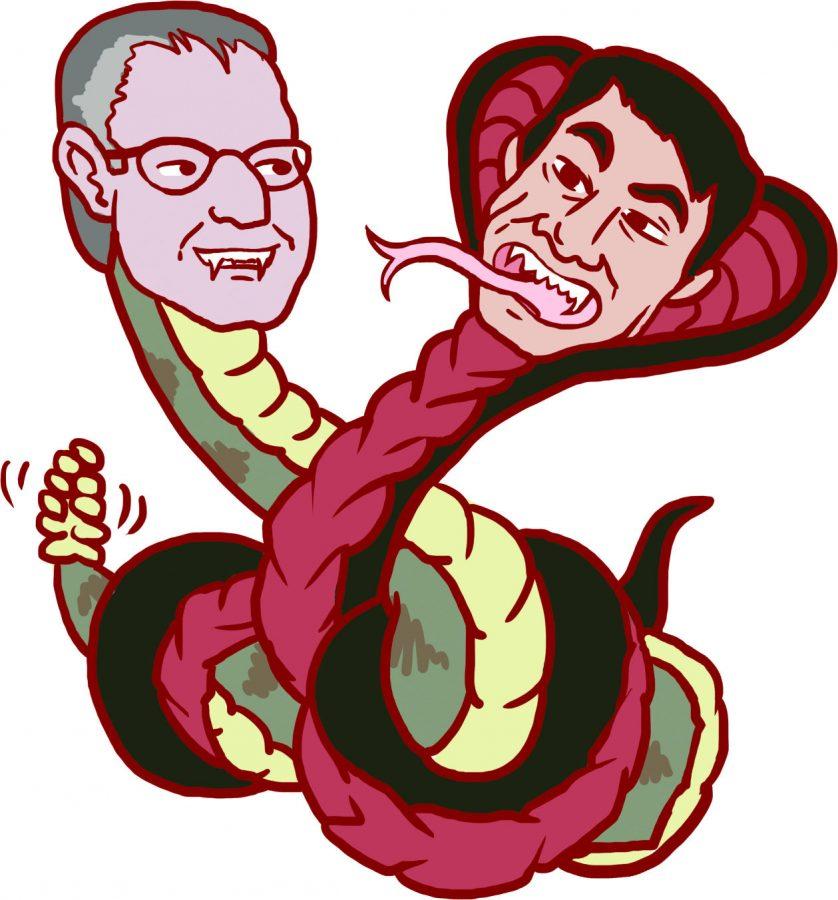Key to tough gubernatorial elections rests with moderate Republicans
September 10, 2014
In the tight Kansas gubernatorial race
featuring republican incumbent Gov.
Sam Brownback versus democrat House
Minority Leader Paul Davis, things are
becoming very interesting and perhaps
even surprising for some.
Polls released on Sept. 8 show that
Brownback has approximately 40
percent of the projected votes, Davis has
47 percent, Libertarian Keen Umbehr
has five percent and seven percent
remain undecided.
“What’s going on here? Four years
ago, Brownback was a shoo-in,” says
Bob Beatty, professor of political science
at Washburn. “Kansas is a conservative
state overall, but also a practical state.
In the last 50 years, Kansans have been
willing to elect Democrats for governors
if they feel like the Democrat would
better be able to get things done.”
Beatty, who holds a Master of Arts from
the University of Kentucky as well as a
Doctorate of Philosophy from Arizona
State University, believes that the key
to the upcoming elections is moderate
Republicans. Currently 44 percent of
Kansans affiliate themselves with the
GOP, 24 percent with Democrats, 31
percent with Independents, and .7 percent
with Libertarians. Given the statistics, if
voters stuck with their party affiliations,
Republicans would always win.
However, Beatty recognizes that
many moderate republicans have been
dissatisfied with the past four years, and
some are willing to endorse Paul Davis.
“Davis needs to get 25 percent [of the
republican vote],” said Beatty. “That’s
the key. Twenty-five percent is not a
huge number, but it’s what makes the
difference.”
Fortunately for Davis, it seems that
he has gained the support of necessary
swing-voters, as polls show that he
has as much, if not more support than
Brownback. They also show that some
of this support is coming from rural
areas that are traditionally thought of as
extremely conservative.
“People out in the country are
conservative, but they are practical,” said
Beatty. “They might know that if Davis
got elected, he would be limited by the
legislature, because it’s republican. So
he’s a safe choice.”
While stepping into the world of
politics may sometimes seem confusing,
one WU professor sees a clear line drawn
beneath all the mud being slung.
“Elections are a lot simpler than the
media wants to portray,” said Steven
Cann, political science professor.
Cann, who has a Master of Arts from
North Dakota State University and a
Doctorate of Philosophy from Purdue
University, points out Brownback’s
platform of tax cuts, more funds for
education, and job growth.
“All of his stuff is tied to what he thinks
will bring economic growth; low taxes,
good schools and good universities,”
said Cann.
Davis, on the other hand is campaigning
mainly on the idea that Kansas needs a
common sense leader, and Brownback,
according to the professor, is too
conservative to be that leader. Davis has
taken advantage of Brownback’s loss of
public support and promised to freeze his
unpopular tax cuts and get the state back
on track before economic disaster hits.
The candidates’ approach to their
campaigns exemplifies the differences
between the two.
“[Brownback] is saying the sun
is shining, everything is great,” said
Beatty. “Forget what my opponent says,
the economy is better, the schools are
better.”
According to Beatty, Brownback
is trying to portray his opponent as a
bad national democrat, while Davis is
reaching out to moderates by claiming
the governor is too conservative and
going in the wrong direction.
In the end, tax cuts, education funding
and economic growth are the main
platforms of this term’s gubernatorial
elections. The outcome of the upcoming
elections will be largely dependent on
whether moderate republicans choose to
endorse ultra-conservative Brownback
or Democrat Paul Davis. The direction
in which those voters swing could very
well determine the winner.
Elections will be held on Tuesday,
Nov. 4. Registered voters may also
cast their ballot starting the Tuesday
before Election Day, or up to 20 days
beforehand. For voter registration
information, visit www.voteks.org.



